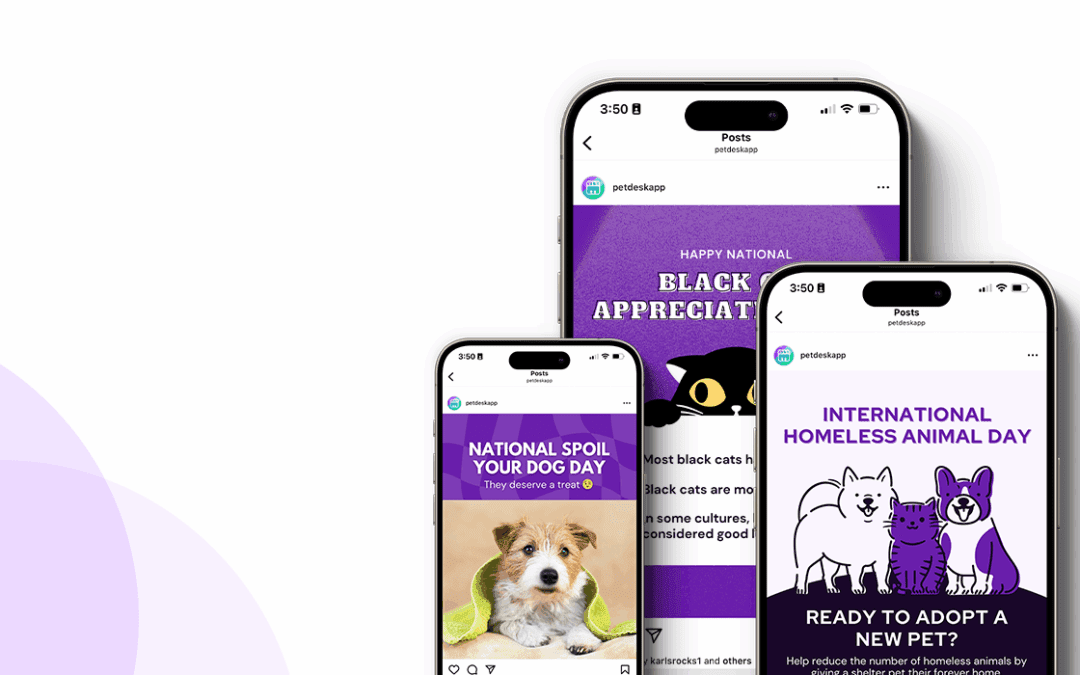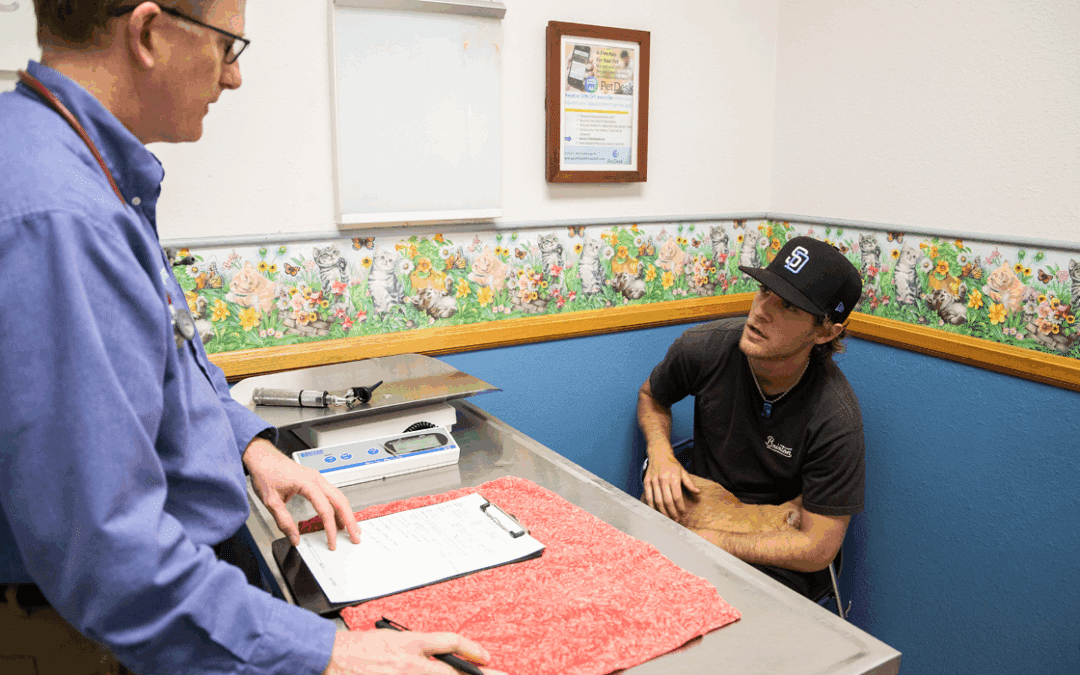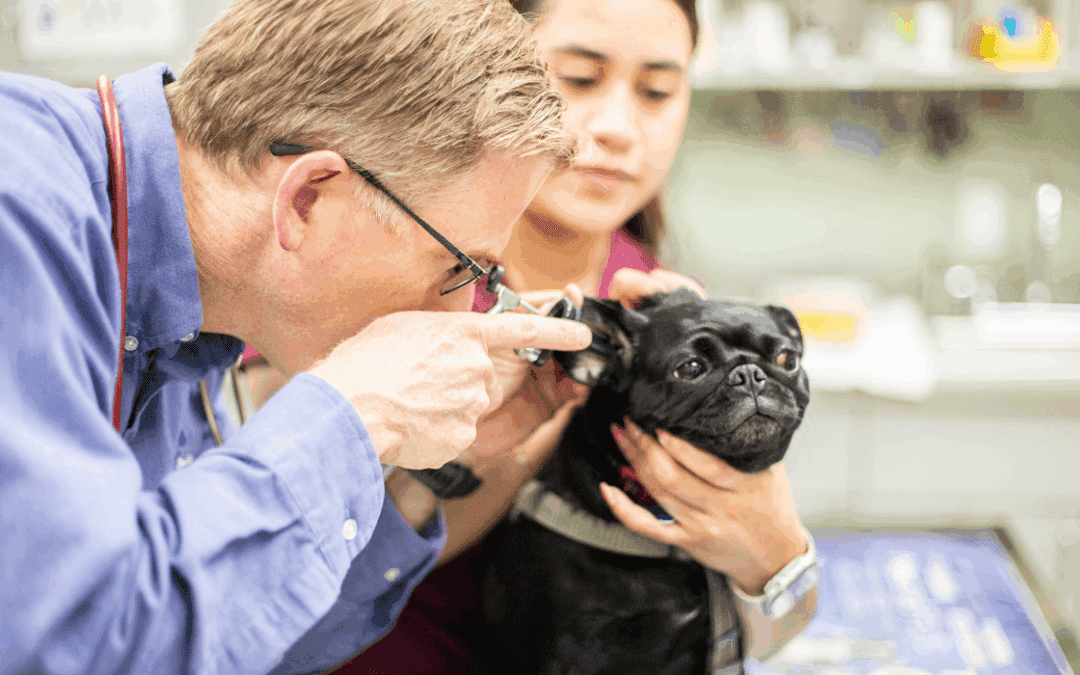As temperatures rise, so does the risk of pet emergencies. Heatstroke, dehydration, and drowning are just a few of the dangers that our furry friends face during summertime. As a member of the veterinary team, you play a critical role in keeping pets safe and healthy during the summer months. Here are five ways you can help your clients avoid summer pet emergencies:
Educate Clients About Heatstroke in Pets
Heatstroke is a very real danger for pets during summertime. Dogs and cats can quickly become overheated when left in cars, homes with no air conditioning, or outdoors without access to shade and water.
Be sure to educate your clients about the signs of heatstroke in pets, including excessive panting, drooling, lethargy, and vomiting. You can also provide tips on heatstroke prevention, like providing plenty of shade and water when outdoors, avoiding strenuous exercise in hot weather, and walking dogs in the early morning or evening.
It’s also important to inform clients that pets with flat faces, like Bulldogs and Pugs, are especially prone to heatstroke. This is due to their shortened nasal passages which make it difficult for them to cool themselves effectively.
Finally, remind clients never to leave their pet in a parked car, even for short periods. The temperature inside a vehicle can rise almost 20º F in just 10 minutes, and almost 30º F in 20 minutes.
Talk About Water Safety for Pets
With many clients and their pets spending time near pools, lakes, and oceans during the summer, it’s vital to talk about water safety.
Make sure clients are aware that even if their pet knows how to swim, they can still tire quickly and drown. Dogs in particular are prone to drowning because they tend to over-exert themselves when swimming.
Explain why it’s a good idea to invest in a pet life jacket, and provide tips on how to choose the right size and style. You can also share some general water safety tips (link to pool safety post), such as never leaving a pet unsupervised around water and being aware of the signs of drowning.
Encourage Clients to Keep Their Pets Hydrated
Dehydration is a common problem for pets during summertime, especially those that spend lots of time outdoors. Make sure clients know the signs of dehydration in pets, including excessive panting, dry mouth, sunken eyes, and lethargy.
It’s also important to encourage clients to keep their pets hydrated by providing fresh, clean water at all times. If necessary, they can add a little chicken broth or low-sodium beef broth to their pet’s water bowl to encourage them to drink more.
Other tips you can share include bringing a water bottle and bowl when traveling with pets, investing in a pet water fountain, and making frozen popsicles with pet-friendly ingredients.
Recommend Pet-Safe Sunscreen and Insect Repellents
Pets can get sunburned and bitten by bugs during summertime, so make sure to recommend pet-safe sunscreen and insect repellents.
There are a number of sunscreens designed for pets that provide broad-spectrum protection against both UVA and UVB rays. Similarly, there are plenty of pet-safe insect repellents on the market that can help protect against fleas, ticks, and mosquitoes.
Discuss why it’s important to avoid using human sunscreen and insect repellents on pets. Human sunscreens often contain chemicals that can be toxic to pets if ingested, while insect repellents formulated for humans can also be dangerous for animals.
Advise About Animals in Your Area That May Pose a Threat to Pets
Our final tip is to advise clients about any animals in your area that may pose a threat to their pets. This could include snakes, spiders, coyotes, or other dangerous creatures.
Encourage clients to take precautions to protect their pets, such as keeping them on a leash, securing their yard, and covering trash cans. It’s also a good idea to provide them with a list of local animal control numbers so they can get help if needed.
Check out our post, 7 Creatures That Are Dangerous to Pets, for more information about dangerous animals that are common throughout North America.
Open Up Communication with Clients and Have a Great Summer!
By following these tips, you can help your clients avoid summer pet emergencies and keep their furry friends safe and healthy all season long! Just make sure to encourage them to take precautions and seek veterinary care immediately if their pet shows any signs of illness or injury. Have a great summer! Need some more educational material for your clients? Download the Hot Pet Summer Resource Pack for 2023 today!
See the power of PetDesk for yourself—for free
Save time and grow your business with custom websites and digital marketing, 24/7 error-free booking, a PIMS-VoIP phone system, plus a client engagement platform with a mobile app.






